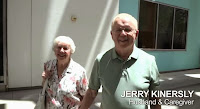As more medications move toward federal approval for Alzheimer’s disease, a new study led by researchers at UC San Francisco and Kaiser Permanente Washington has found that personalized health and lifestyle changes can delay or even prevent memory loss for higher-risk older adults.
The two-year study compared cognitive scores, risk factors and quality of life among 172 participants, of whom half had received personalized coaching to improve their health and lifestyle in areas believed to raise the risk of Alzheimer’s, such as uncontrolled diabetes and physical inactivity.
Article continued below video…
These participants were found to experience a modest boost in cognitive testing, amounting to a 74% improvement over the non-intervention group.
Improvements were also noted between the two groups in measurements of risk factors and quality of life, translating approximately to 145% and 8%, respectively, the researchers reported. The study publishes Nov. 27, 2023, in JAMA IM.
Older adults highly motivated to make changes
The study, known as SMARRT, for systematic multi-domain Alzheimer’s risk reduction trial, follows previous work from other researchers that has yielded contradictory results on the effects of health and lifestyle interventions. This study differed, though, in providing personal coaching that was customized to each participant.
Hopefully in the future, treatment of Alzheimer’s and related dementias will be like cardiovascular disease management, with a combination of risk-reduction and specific drugs targeted for disease mechanisms.”
KRISTINE YAFFE, MD
“This is the first personalized intervention, focusing on multiple areas of cognition, in which risk factor targets are based on a participant’s risk profile, preferences and priorities, which we think may be more effective than a one-size-fits-all approach,” said first author and lead investigator Kristine Yaffe, MD, vice chair of research in psychiatry and professor in the UCSF departments of neurology, psychiatry, and epidemiology and biostatistics. “Not only did we find a significant reduction in risk factors, this is one of only a few trials that has shown a benefit in cognition that likely translates to lower dementia risk.
“In an earlier survey of 600 older adults, we found that most were concerned about Alzheimer’s disease and related dementias. They wanted to know their personal risk factors and were highly motivated to make lifestyle changes to lower dementia risk,” said Yaffe, referring to her collaboration with co-lead investigator and co-author Eric B. Larson, MD, MPH, former vice president for research and health care intervention at Kaiser Permanente Washington.
Participants in the current study, as well as the earlier survey, were enrolled in Kaiser Permanente Washington and were between 70 and 89 years old. They had at least two of eight risk factors for dementia: physical inactivity, uncontrolled hypertension, uncontrolled diabetes, poor sleep, use of prescription medications associated with risk of cognitive decline, high depressive symptoms, social isolation and current smoking status.
The intervention participants met with a nurse and health coach and selected specific risk factors they wanted to address. They received coaching sessions every few months to review their goals, which ranged from tracking hypertension to walking a certain number of steps per day or signing up for a class. The meetings started in person and switched to phone calls during the pandemic.
Non-intervention participants were similar in age, risk factors and cognitive scores and received educational material, mailed every three months, on dementia risk reduction.
Pandemic did not offset study’s positive effects
“We were pleasantly surprised that the positive results of the trial were not offset by the impact of the pandemic,” said Larson, who is currently professor of medicine at University of Washington. “We know that isolation from social distancing took a heavy toll on cognition, social lives, and mental and physical health in some older adults. But participants in the intervention group fared better cognitively and had fewer risk factors after the trial, during the pandemic, than they did before.”
Unlike anti-amyloid medications, risk-reduction programs are not costly, nor do they have strict eligibility criteria or require extensive monitoring for side-effects, said Yaffe, who is also affiliated with the San Francisco VA Health Care System and the UCSF Weill Institute for Neurosciences.
“Hopefully in the future, treatment of Alzheimer’s and related dementias will be like cardiovascular disease management, with a combination of risk-reduction and specific drugs targeted for disease mechanisms,” she said.
Co-Authors: Eric Vittinghoff, PhD, and Deborah E. Barnes, PhD, MPH, of UCSF; Carrie B. Peltz, PhD, of the San Francisco VA Health Care System; and Sascha Dublin, MD, PhD, Lynn Fleckenstein, MA, Dori Rosenberg, PhD, MPH, and Benjamin H. Balderson, PhD, of Kaiser Permanente Washington Health Research Institute, Seattle.
Funding Support: National Institute on Aging (1R01AG057508)
Disclosures: Please see the paper.












I’m glad that coaching is being recognized for its value with dementia. All seven of the authors of the the book, The First Survivors of Alzheimer’s, had extensive coaching, and it is unlikely they could have reversed their Alzheimer’s without this level of support. I see the same thing in our Brain Therapy Studio: The clients that receive extensive coaching generally have the best outcomes. Thank you for publishing this article!
Thanks for the positive feedback… I think people need to hear words like yours… while most of us know we could use a little coaching, we need encouragement to actually make the initiative to start the coaching.
I was a skeptic, but since starting with a coach not long ago, I lost a nice amount of extra weight right away and it has stayed off.